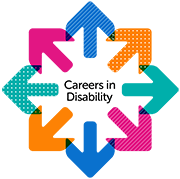BE PART OF SOMETHING BETTER
START YOUR CAREER IN DISABILIITY
Your Career in Disability
Now is the time to join the rapidly growing disability sector.
Because a career supporting people with disability is a chance to be part of something better.








